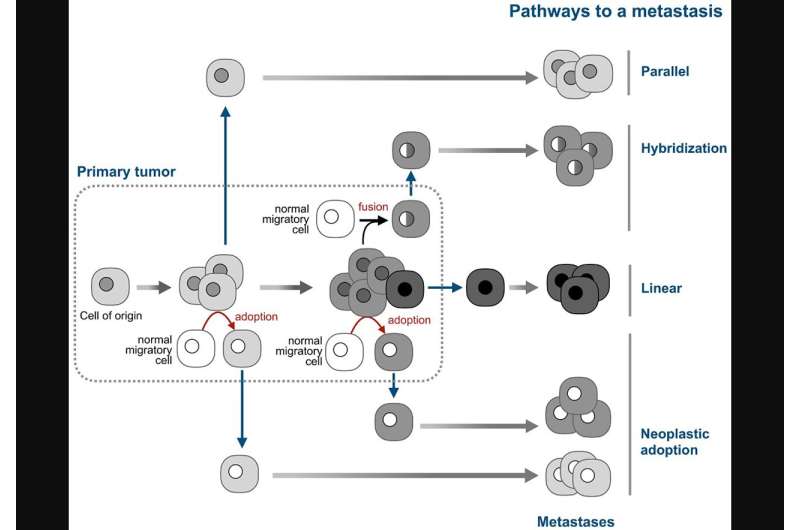This article has been reviewed according to Science X's editorial process and policies. Editors have highlighted the following attributes while ensuring the content's credibility:
fact-checked
peer-reviewed publication
proofread
Adopted neoplastic cells and the consequences of their existence

A new research perspective titled "Adopted neoplastic cells and the consequences of their existence" has been published in Oncotarget.
In this research perspective, researcher Yuri Lazebnik from Lerna Consulting begins by explaining a view that guides the bulk of cancer research and oncology: Each neoplastic cell in a tumor is a genetic offspring of another neoplastic cell.
"Yet, analyzing tumors from transplant patients has revealed that some normal migratory cells adopt the phenotype of neoplastic cells without acquiring their genome, thus becoming what I suggest to call adopted neoplastic cells," Lazebnik explains.
This commentary reviews the evidence for the existence of adopted neoplastic cells, outlines the consequences of their presence, and discusses what kind of cells can be adopted, how and why.
"Finally, as experiments with humans can go only that far, and fortunately so, testing the hypotheses we have discussed will require experimental systems, such as human tumor explants, which have been explored to reveal intercellular bridging and chimeric animals designed to monitor cell fate, cell fusion, and component transfer," concludes Lazebnik.
More information: Yuri Lazebnik, Adopted neoplastic cells and the consequences of their existence, Oncotarget (2023). DOI: 10.18632/oncotarget.28408




















